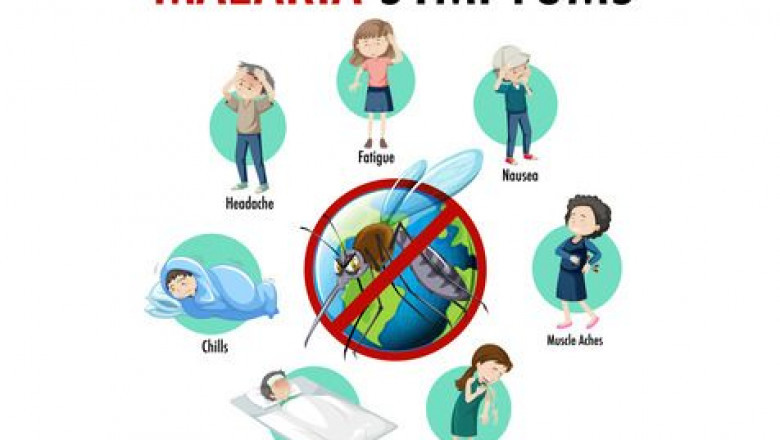views
How Malaria Spreads and What You Can Do to Prevent It
Malaria is one of the most dangerous infectious diseases in the world, with millions of cases reported each year. It primarily affects people living in tropical and subtropical regions, especially sub-Saharan Africa, Southeast Asia, and parts of South America. While malaria can be a life-threatening illness, its spread is preventable, and with the right knowledge and precautions, individuals can significantly reduce their risk of contracting the disease. This article explores how malaria spreads and provides tips on what you can do to protect yourself, including information about purchasing antimalarial drugs like hydroxychloroquine.
How Malaria Spreads
Malaria is caused by parasites belonging to the Plasmodium genus. These parasites are transmitted through the bites of infected female Anopheles mosquitoes. When a mosquito bites an infected person, it picks up the malaria parasites from the person's blood. Later, when the mosquito bites another person, the parasites are passed into that person's bloodstream, starting a new cycle of infection.
Once inside the body, the malaria parasites travel to the liver, where they mature and reproduce. Afterward, they enter the bloodstream and infect red blood cells, leading to symptoms like fever, chills, fatigue, and sweating. In severe cases, malaria can cause organ failure, coma, and even death, especially if not treated promptly.
Key Factors in Malaria Transmission
-
Mosquitoes: The primary vector for malaria is the Anopheles mosquito. These mosquitoes are most active between dusk and dawn. The mosquitoes thrive in areas with stagnant water, such as swamps, ponds, and even containers that collect rainwater.
-
Climate Conditions: Malaria transmission is heavily influenced by the climate. Hot, humid conditions provide an ideal environment for Anopheles mosquitoes to breed. Rainy seasons and tropical climates increase the likelihood of malaria outbreaks.
-
Human Mobility: Malaria is also spread through human movement. People traveling from malaria-endemic areas to non-endemic areas may introduce the disease to new regions, leading to outbreaks.
-
Drug Resistance: In recent years, resistance to antimalarial drugs like chloroquine and artemisinin has become an issue. This makes it harder to treat the disease and increases the importance of prevention.
How to Prevent Malaria
While malaria is a serious disease, there are various preventive measures you can take to reduce the risk of infection. Here are some essential steps to protect yourself and your family:
-
Use Mosquito Protection:
-
Insect Repellents: Apply insect repellent containing DEET or other effective ingredients on exposed skin. This helps keep mosquitoes away, especially during their peak activity hours in the evening and at night.
-
Mosquito Nets: Sleeping under insecticide-treated mosquito nets is one of the most effective ways to prevent malaria while sleeping. These nets form a barrier between you and the mosquitoes, providing protection from bites.
-
Mosquito Screens: Ensure that your living spaces are equipped with screens on windows and doors to prevent mosquitoes from entering.
-
-
Eliminate Mosquito Breeding Grounds:
-
Remove Stagnant Water: Anopheles mosquitoes lay their eggs in stagnant water, so eliminating standing water around your home can significantly reduce mosquito populations. Empty containers, clean gutters, and fill in any areas where water can accumulate.
-
Use Larvicides: In areas with high mosquito populations, applying larvicides to water sources can help prevent mosquitoes from breeding.
-
-
Travel Precautions:
-
If you're traveling to a region where malaria is common, it's essential to take antimalarial medication as a preventive measure. Drugs like hydroxychloroquine are often prescribed to travelers to reduce the risk of infection.
-
Timing and Duration: Take the medication before, during, and after your trip, as recommended by a healthcare professional. This helps protect you from contracting malaria while you're in a high-risk area.
-
-
Hydroxychloroquine for Malaria Prevention:
-
What Is Hydroxychloroquine? Hydroxychloroquine is a medication used to treat and prevent malaria. It works by interfering with the parasites’ ability to replicate within red blood cells. It is especially useful in areas where malaria is caused by Plasmodium falciparum, the most common and severe species of malaria parasite.
-
Buying Hydroxychloroquine: You can buy hydroxychloroquine online through reputable pharmacies like Dosepharmacy. However, it’s important to consult with a healthcare provider before taking any medication to ensure it's appropriate for your situation and that you're taking the correct dosage.
-
Safety Considerations: While hydroxychloroquine is generally safe for preventing malaria, it’s essential to follow medical advice regarding its use, as improper use can lead to side effects. Some people may experience side effects, including gastrointestinal issues, headaches, or, in rare cases, heart problems.
-
-
Early Diagnosis and Treatment:
-
If you develop symptoms of malaria, such as fever, chills, and fatigue, seek medical attention immediately. Early diagnosis and treatment with antimalarial medications are crucial in preventing severe disease and complications.
-
Treatment Options: In addition to hydroxychloroquine, other medications such as artemisinin-based combination therapies (ACTs) are commonly used to treat malaria.
-
Conclusion
Malaria remains a major health threat, but with proper prevention and prompt treatment, its spread can be significantly reduced. By using mosquito protection, eliminating breeding grounds, and taking appropriate medications like hydroxychloroquine when traveling to malaria-prone areas, you can protect yourself and your loved ones from this dangerous disease. Always consult with a healthcare professional before purchasing any medications online or traveling to areas where malaria is endemic to ensure that you are well-prepared to prevent infection.














Comments
0 comment